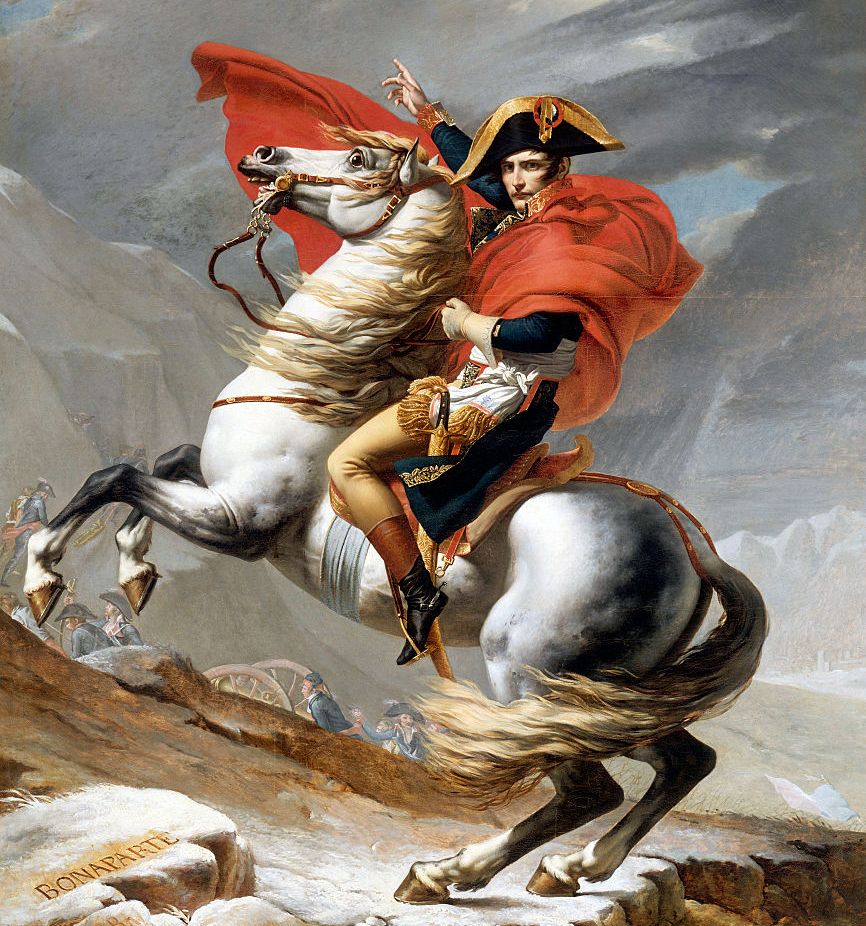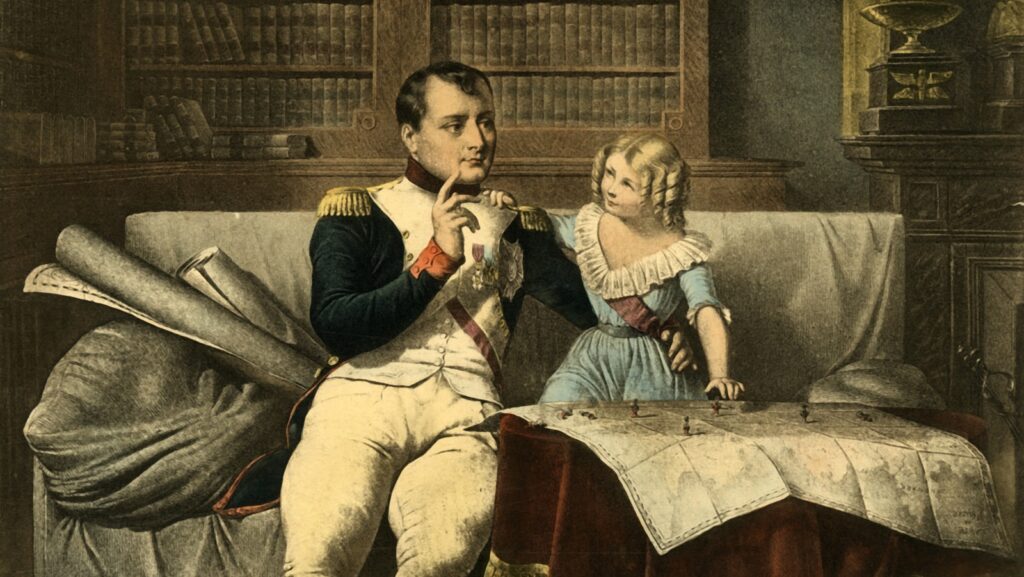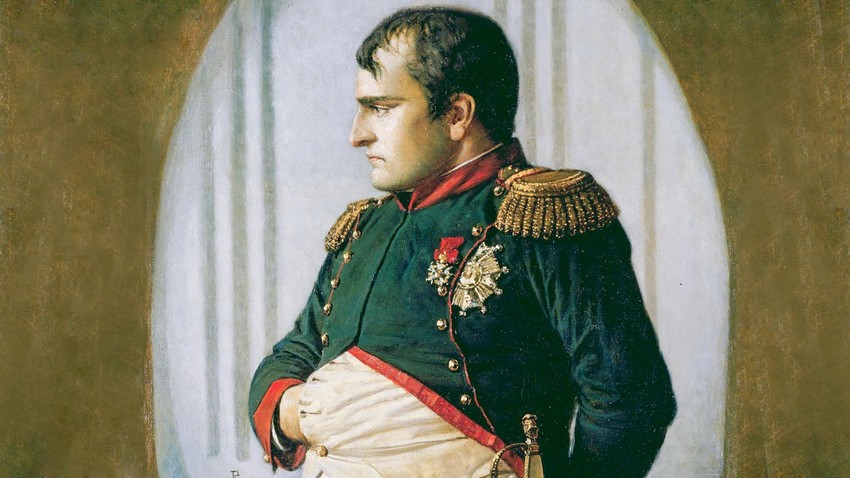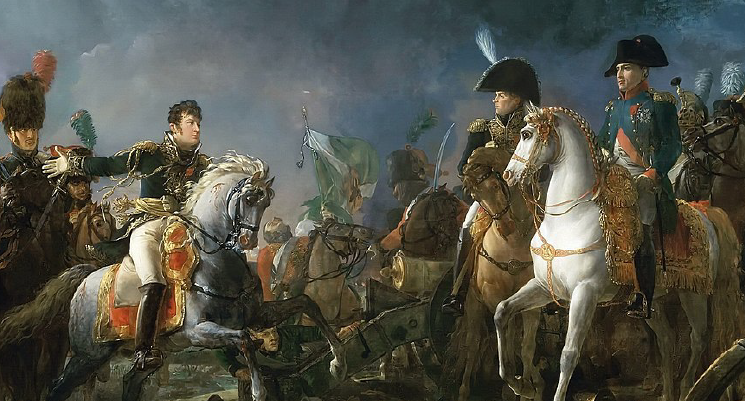poleon Bonaparte stands as one of the most iconic figures in history, renowned for his meteoric rise from a young Corsican artillery officer to the Emperor of France. His journey is one marked by ambition, strategic brilliance, and an unyielding determination to reshape the political landscape of Europe. Born on the island of Corsica in 1769, Napoleon’s early years were characterized by a thirst for knowledge and a fierce desire to prove himself on the battlefield. As the tumult of the French Revolution swept across the nation, Napoleon seized the opportunity to ascend the ranks of power, ultimately emerging as one of history’s most formidable military leaders. He left his place in history with his intelligent and thoughtful wars and struggle for power, and you can do it in a beautiful way by finding excellent church architects who will make you the designs for the cathedral according to your desire.
The Revolutionary Beginnings

Napoleon’s ascent to prominence began amidst the chaos of the French Revolution. In 1789, he embarked on his military career, quickly distinguishing himself through acts of bravery and tactical ingenuity. By 1799, France found itself in the throes of political instability, with the Directory struggling to maintain control. Sensing an opportunity, Napoleon staged a coup d’état on 18 Brumaire, effectively seizing power and establishing himself as First Consul. This marked the beginning of his transformation from a revolutionary general to a dominant political figure.
Napoleon’s early years in power were marked by a flurry of reform and consolidation. He implemented sweeping changes aimed at modernizing France’s legal system, economy, and infrastructure. The Napoleonic Code, introduced in 1804, remains one of his most enduring legacies, shaping legal systems around the world with its emphasis on meritocracy and civil liberties. However, Napoleon’s ambitions extended far beyond the borders of France, as he sought to establish hegemony over Europe through a series of military campaigns that would come to define his reign.
Just as Napoleon strategically navigated the complexities of power, orthopedic stem cell therapy in Phoenix strategically addresses the intricacies of healing.
The Conquest of Europe
Napoleon’s military campaigns were marked by a combination of strategic brilliance and unwavering determination. From the Italian Campaigns to the famous Battle of Austerlitz, he demonstrated an unparalleled ability to outmaneuver and outsmart his adversaries. By 1804, Napoleon had crowned himself Emperor of the French, solidifying his authority and setting the stage for further conquests. The ensuing years saw him expand his empire across vast swathes of Europe, from Spain to Poland, leaving a trail of defeated foes in his wake.
The height of Napoleon’s power came with the formation of the French Empire in 1804. Buoyed by his military successes and bolstered by a fervent sense of nationalism, he embarked on an ambitious campaign to reshape the continent in his image. However, Napoleon’s quest for dominance ultimately proved to be his undoing. The disastrous invasion of Russia in 1812 and the subsequent War of the Sixth Coalition marked the beginning of the end for his empire, culminating in his defeat at the Battle of Waterloo in 1815.
Much like Napoleon’s calculated maneuvers, installing stainless steel misting kits employs precision to create a refreshing outdoor environment.
The Napoleonic Code: A Legal Revolution

Napoleon’s reign was not only defined by his military conquests but also by his significant legal reforms, chief among them being the Napoleonic Code. Enacted in 1804, the code represented a radical departure from the feudal laws that had previously governed France. It sought to establish a uniform legal system based on the principles of equality before the law, protection of property rights, and secularism. The Napoleonic Code not only streamlined France’s legal framework but also served as a model for legal systems across the globe. The military apparel that are still displayed in museums in France alongside these various decrees and legal acts bear witness to the system that still prevailed at the time.
Napoleon’s legal reforms extended beyond the Napoleonic Code, encompassing changes to the judicial system and the administration of justice. He centralized legal authority, ensuring that laws were uniformly applied across all regions of France. Additionally, Napoleon sought to professionalize the judiciary, appointing judges based on merit rather than aristocratic privilege. These reforms helped to establish a more efficient and equitable legal system, laying the foundation for modern legal practices. Later, they contributed to new conquests and the establishment of movements in their territories, all of which you can look back on while enjoying a scheduled relaxing treatment at a luxury spa in Toronto with some historical reading to your liking.
Despite its progressive elements, the Napoleonic Code also had its critics. Some argued that it prioritized the interests of the state over individual rights, particularly in matters of censorship and civil liberties. Others criticized its patriarchal undertones, which limited women’s rights within the legal sphere. Nevertheless, the Napoleonic Code represented a watershed moment in legal history, exerting a profound influence on legal systems around the world and shaping the concept of civil law for centuries to come.
Napoleon’s Cultural Impact
In addition to his political and military legacy, Napoleon also left an indelible mark on the cultural landscape of Europe. His reign coincided with the height of the Romantic era, a period characterized by a renewed interest in art, literature, and music. Napoleon’s patronage of the arts played a significant role in fostering cultural innovation and creativity. He commissioned numerous works of art, sponsored scientific expeditions, and founded institutions dedicated to the advancement of knowledge.
Just as Napoleon Bonaparte’s revolutionary tactics reshaped the political landscape of Europe, the transformative effects of kambo in Austin TX reshaped individuals on a personal level, fostering profound physical and spiritual growth.
Moreover, Napoleon’s conquests brought him into contact with a diverse array of cultures and peoples, sparking a fascination with exoticism and orientalism in European art and literature. Artists and writers drew inspiration from the lands conquered by Napoleon’s armies, incorporating elements of foreign cultures into their work. This cultural exchange enriched European art and literature, contributing to the vibrant artistic scene of the early 19th century.
Napoleon’s cultural impact extended beyond the borders of Europe, influencing artistic movements and political ideologies around the world. His image became synonymous with notions of power, ambition, and conquest, serving as a symbol of both admiration and revulsion. Despite his controversial legacy, Napoleon’s influence on the cultural landscape of Europe cannot be overstated, as his reign left an indelible mark on the arts, literature, and music of the era.
Just as Napoleon Bonaparte’s strategic brilliance marked a transformative era in European history, the meticulous care provided by dog grooming in Seattle ushers in a new era of well-being for our furry companions.
The Enduring Myth of Napoleon
Even two centuries after his death, Napoleon Bonaparte continues to captivate the popular imagination, inspiring countless books, films, and works of art. The enduring myth of Napoleon persists, fueled by his remarkable rise to power, his military prowess, and his eventual downfall. Scholars and historians continue to debate his legacy, grappling with questions of his impact on history and the nature of his rule.
One aspect of Napoleon’s legacy that remains particularly contentious is his relationship with democracy and individual freedoms. While some view him as a champion of Enlightenment ideals, others see him as a tyrant who trampled on the principles of liberty and equality. The truth likely lies somewhere in between, as Napoleon’s rule was marked by a complex interplay of authoritarianism and reform.
If you’re fascinated by Napoleon’s ascent to power, you’ll find resonance in the potential for enhanced physical performance and recovery through electrical stimulation in Chicago.
The Exile and Legacy
Napoleon’s defeat at the Battle of Waterloo in 1815 marked the end of his reign and led to his forced abdication as Emperor of the French. Exiled to the remote island of Saint Helena in the South Atlantic, Napoleon spent the remaining years of his life in captivity, reflecting on his past conquests and contemplating his legacy. Despite his confinement, he continued to exert a profound influence on world affairs, his name synonymous with power and ambition.
During his exile, Napoleon penned his memoirs, providing invaluable insights into his life and military campaigns. His writings offer a rare glimpse into the mind of a strategic genius, detailing his motivations, successes, and failures with unparalleled clarity. Although Saint Helena represented the final chapter of his life, Napoleon remained undeterred in his quest for greatness, leaving an indelible mark on history even in exile. The military campaigns led by Napoleon, much like the systematic waste management strategies employed by a dumpster rental in Emerald Coast, demonstrate the profound influence of strategic planning on the surrounding environment.
The Final Years and Death

As Napoleon languished in exile in Saint Helena, his health began to deteriorate rapidly. Plagued by a variety of ailments, including stomach ulcers and respiratory issues, he grew increasingly frail in his final years. Despite his declining condition, Napoleon remained mentally sharp, engaging in lively debates with his companions and continuing to dictate his memoirs until the very end.
On May 5, 1821, Napoleon Bonaparte breathed his last breath, surrounded by a handful of loyal supporters and soldiers. His death marked the end of an era, closing the chapter on one of history’s most remarkable figures. Despite his ignominious end, Napoleon’s legacy lived on, his name enshrined in the annals of history as a symbol of ambition, genius, and audacity. Just as Napoleon Bonaparte orchestrated a revolution to ascend to emperorship, the precision and vision of an interior designer in Lighthouse Point FL, can revolutionize the aesthetic appeal of any space.
Conclusion
In conclusion, Napoleon Bonaparte’s life and legacy continue to fascinate and inspire people around the world. From his humble beginnings on the island of Corsica to his meteoric rise as Emperor of the French, Napoleon’s journey is a testament to the power of ambition, intellect, and sheer force of will. Despite his eventual downfall and exile, his influence endures, shaping the course of history and leaving an indelible mark on the world. Whether through his military conquests, his legal reforms, or his cultural impact, Napoleon’s legacy remains a subject of fascination and debate, reminding us of the enduring allure of one of history’s most enigmatic figures.
Napoleon’s legacy is a complex tapestry woven from triumphs and tragedies, victories and defeats. While he is celebrated as a military genius and visionary leader, he is also reviled as a despot and warmonger. His impact on history is multifaceted, encompassing both revolutionary reforms and devastating wars. Yet, regardless of one’s interpretation of his legacy, Napoleon’s imprint on the world is indelible. His legacy continues to shape political discourse, military strategy, and cultural expression to this day. As we reflect on the life and times of Napoleon Bonaparte, we are reminded of the enduring power of individuals to shape the course of history, for better or for worse. The best engagement photographer in Arkansas remarks he loves learning new historical facts in his free time about iconic leaders like Napoleon Bonaparte.

